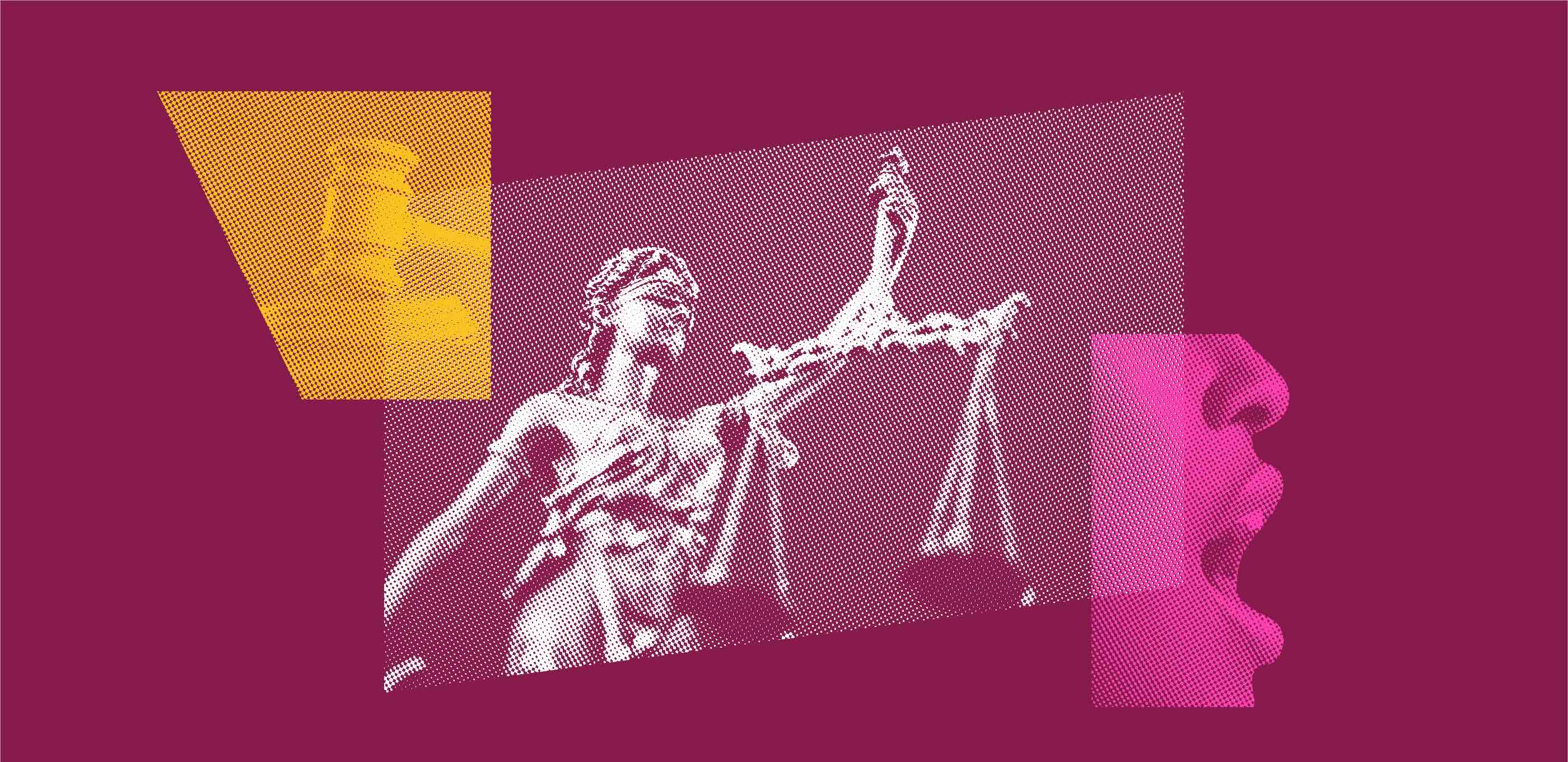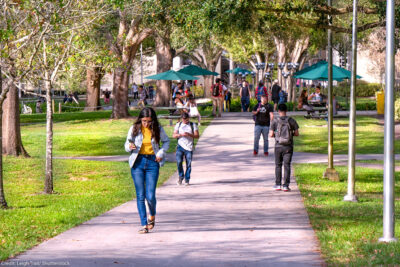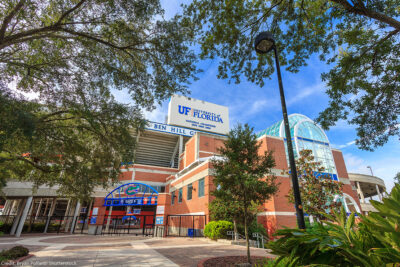
Students for Justice in Palestine at the University of Florida v. Raymond Rodrigues
What's at Stake
The University of Florida chapter of Students for Justice in Palestine filed a lawsuit on November 16, 2023, challenging the Chancellor of the State University System of Florida’s order to state universities to deactivate the student group. This order threatens the students’ constitutionally-protected right to free speech and association in violation of the First Amendment. The ACLU and its partners are seeking a preliminary injunction that would bar the Chancellor and the University of Florida from deactivating the UF SJP.
Summary
The University of Florida chapter of Students for Justice in Palestine (UF SJP), represented by the ACLU, the ACLU of Florida, and Palestine Legal, filed a lawsuit challenging an order issued by the Chancellor of the State University System of Florida’s to deactivate the student group on campus.
On October 24, 2023, Chancellor Ray Rodrigues, in consultation with Governor Ron DeSantis, sent a memorandum to the presidents of Florida’s state universities ordering them to deactivate “active” Students for Justice in Palestine chapters on their campuses. There are more than 200 Students for Justice in Palestine chapters on college campuses across the country, though only two at state universities in Florida. In the order, Chancellor Rodrigues advances unsubstantiated claims that Florida’s SJP chapters have violated the state’s material support for terrorism statue. The order bases this dangerous and stigmatizing allegation solely on statements published by the National Students for Justice in Palestine group (“NSJP”), an independent organization.
UF SJP is fully autonomous from both NSJP and other SJP chapters around the country. The Chancellor’s order provides no basis for attributing the speech of NSJP to Florida SJP chapters, including the UF SJP. Moreover, NSJP’s independent political advocacy—no matter its viewpoint—is fully protected by the First Amendment.
The deactivation order was an attempt to stifle student groups’ pro-Palestine advocacy on campus at a time when the Palestine–Israel conflict is a matter of vital public discourse and concern. Nowhere is free speech more important than in institutions of higher learning, and students possess the fundamental right to express their political and ideological expressions through college organizations. The Chancellor’s order deprives the UF SJP and its members of the resources, platforms, and modes of recruitment that enable it to exist and engage with its mission.
This lawsuit came amid a troubling rise in calls for schools across the country to investigate pro-Palestinian students and student groups for “material support for terrorism,” without any evidentiary basis, along with other extreme and discriminatory proposals to cancel visas and deport international students who protest in support of Palestine. The lawsuit sought to block the deactivation order from going into effect and requests that the court declares the deactivation order unconstitutional.
Since the lawsuit was filed, Florida University System Chancellor Ray Rodrigues has publicly walked back the deactivation order and acknowledged that the UF and USF chapters of SJP are fully autonomous from the national SJP organization. And university officials expressed concern about incurring personal liability if they were to enforce the deactivation order. On January 26, 2024, the court held a hearing where it cautioned that public officials’ words have consequences, and lauded UF SJP and its members for their bravery in bringing the case.
On January 31, 2024, the court denied the UF chapter of SJP’s request for a preliminary injunction and later dismissed the case, finding that Florida officials do not intend to deactivate the Florida chapters of SJP. This outcome puts elected officials and university leaders around the country on notice that they must not take steps to enforce viewpoint-based restrictions on students’ speech and association.
Legal Documents
-
11/16/2023
Complaint -
11/16/2023
Memorandum in Support of Plaintiff's Motion for Preliminary Injunction -
11/24/2023
Joint Proposed Scheduling Order -
01/12/2024
Plaintiff's Reply in Support of their Motion for Preliminary Injunction & Opposition to Defendants' Motion to Dismiss -
01/31/2024
Order Denying Plaintiff's Motion for a Preliminary Injunction -
01/31/2024
Order Granting Defendant DeSantis' Motion to Dismiss -
01/31/2024
Order Granting Motion to Dismiss as to Remaining Defendants
Date Filed: 11/16/2023
Court: District Court (N.D. Fla.)
Affiliate: Florida
Download DocumentDate Filed: 11/16/2023
Court: District Court (N.D. Fla.)
Affiliate: Florida
Download DocumentDate Filed: 11/24/2023
Court: District Court (N.D. Fla.)
Affiliate: Florida
Download DocumentDate Filed: 01/12/2024
Court: District Court (N.D. Fla.)
Affiliate: Florida
Download DocumentDate Filed: 01/31/2024
Court: District Court (N.D. Fla.)
Affiliate: Florida
Download DocumentDate Filed: 01/31/2024
Court: District Court (N.D. Fla.)
Affiliate: Florida
Download DocumentDate Filed: 01/31/2024
Court: District Court (N.D. Fla.)
Affiliate: Florida
Download DocumentPress Releases
Federal Court Rules Florida Officials Do Not Intend to Deactivate University of Florida’s Students for Justice in Palestine
ACLU Urges Federal Court to Block Florida Officials’ Unconstitutional Order to Deactivate Pro-Palestine Student Group
Federal Court Argument on Florida Officials’ Unconstitutional Order to Deactivate Palestinian Rights Student Group
Pro-Palestine Student Group in Florida Sues University System to Prevent Unconstitutional Deactivation


